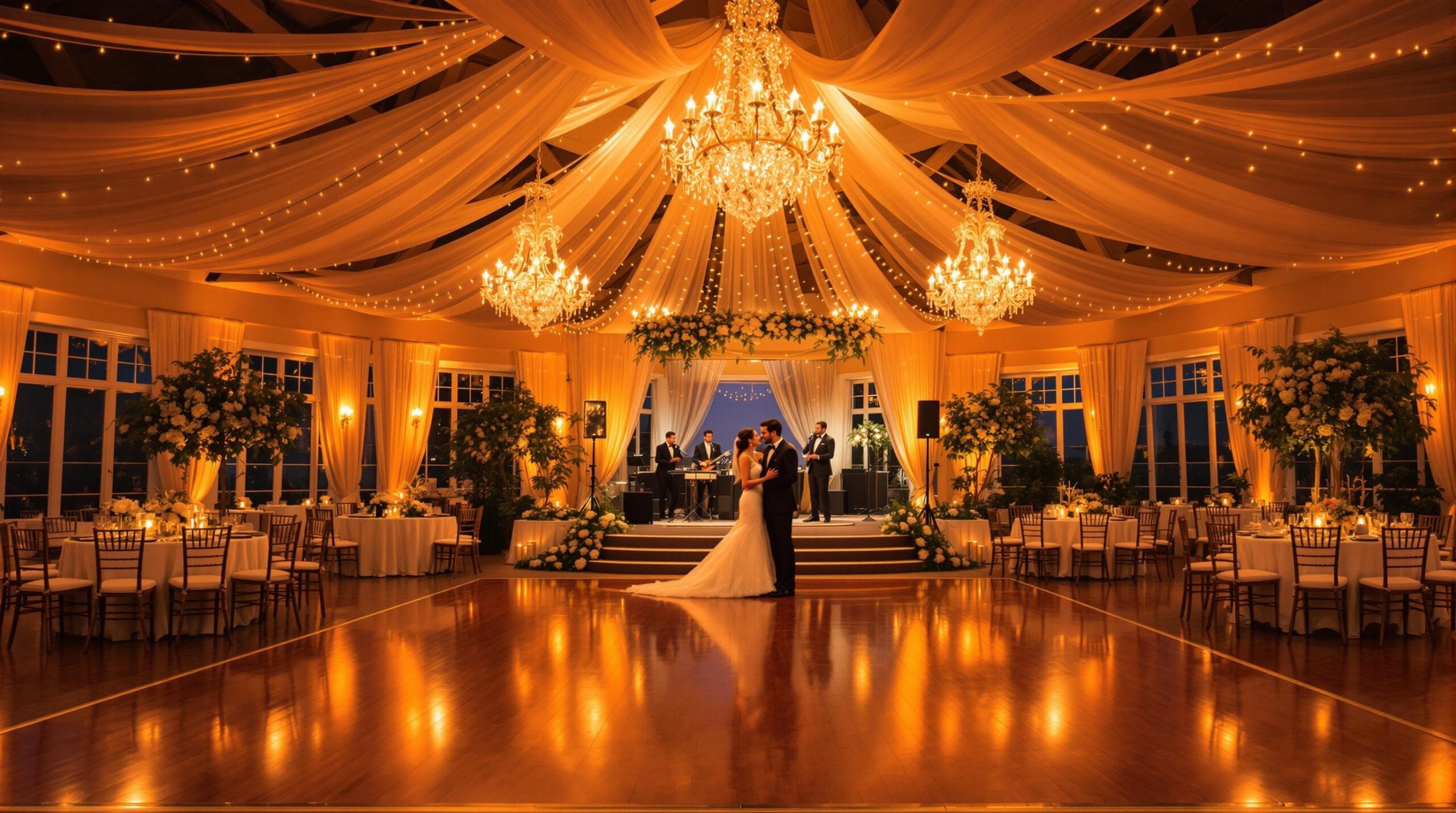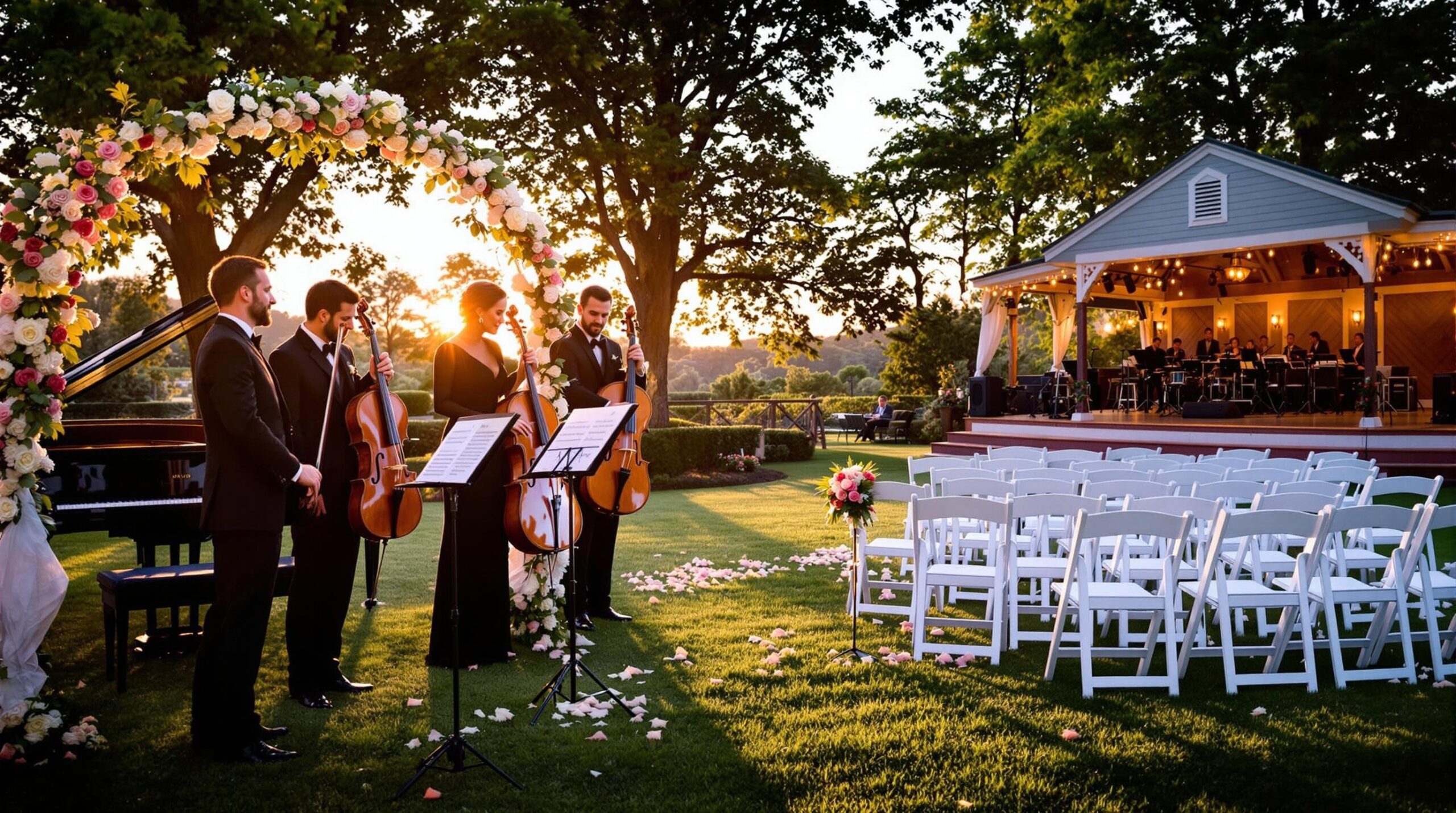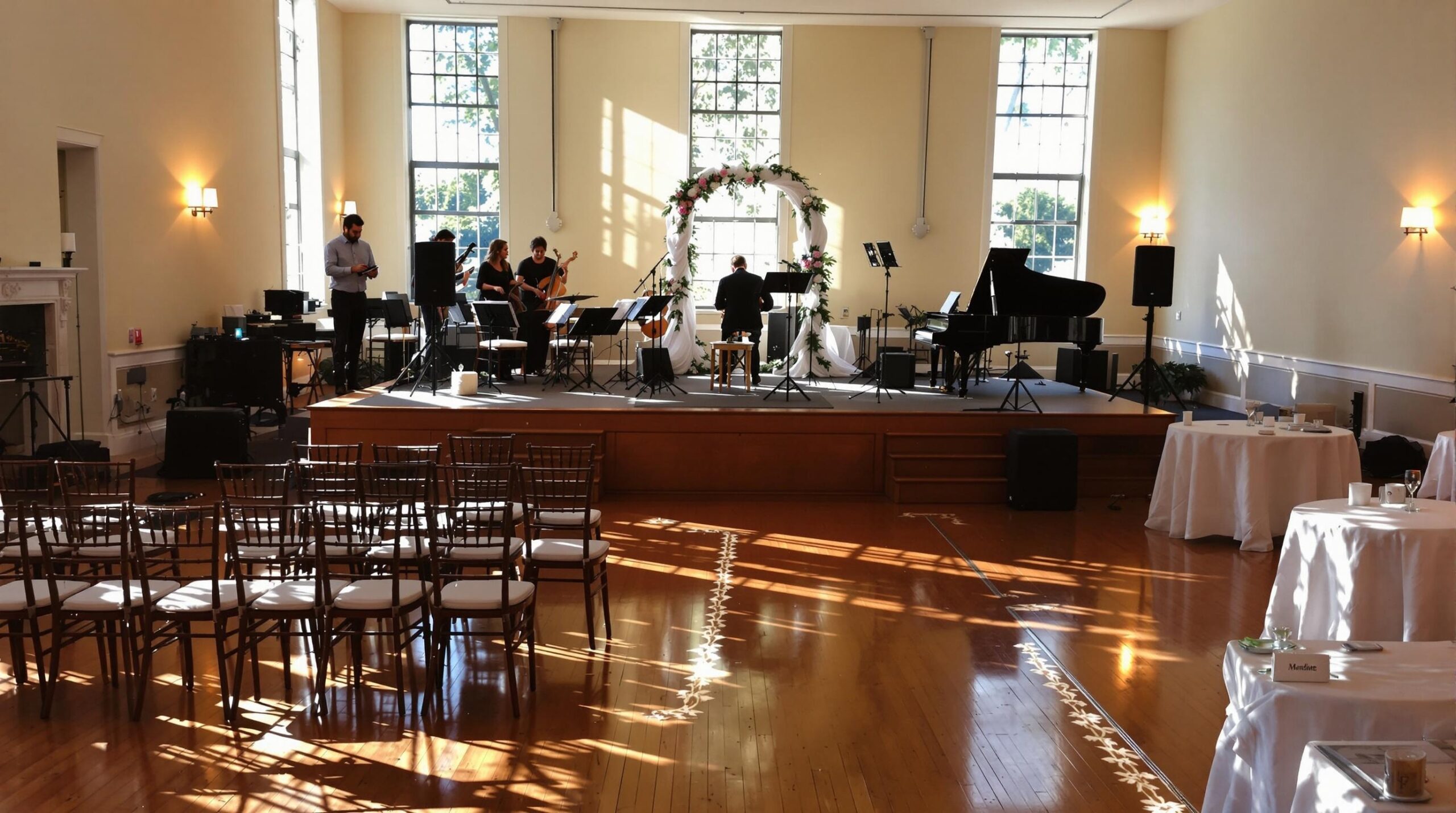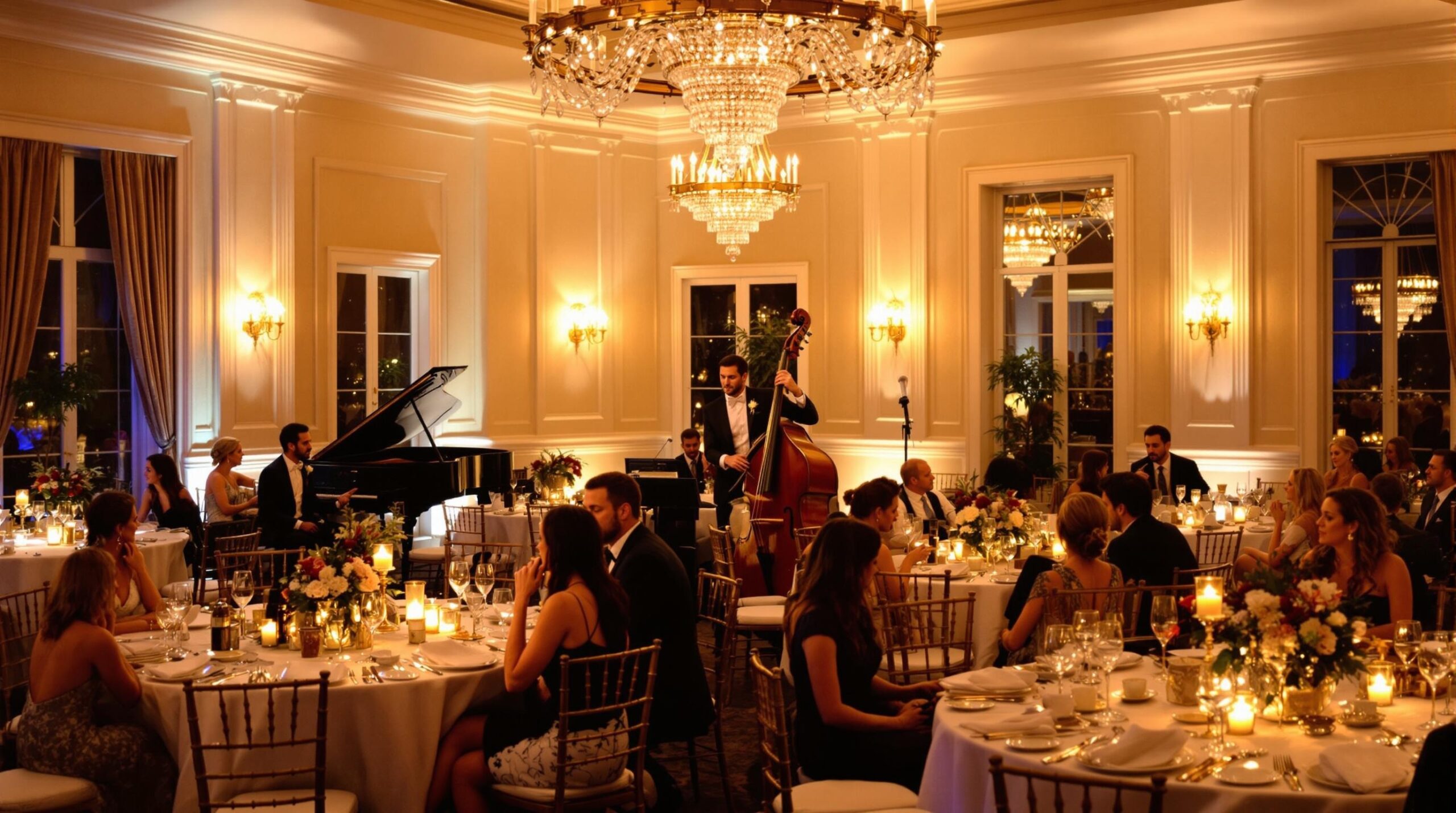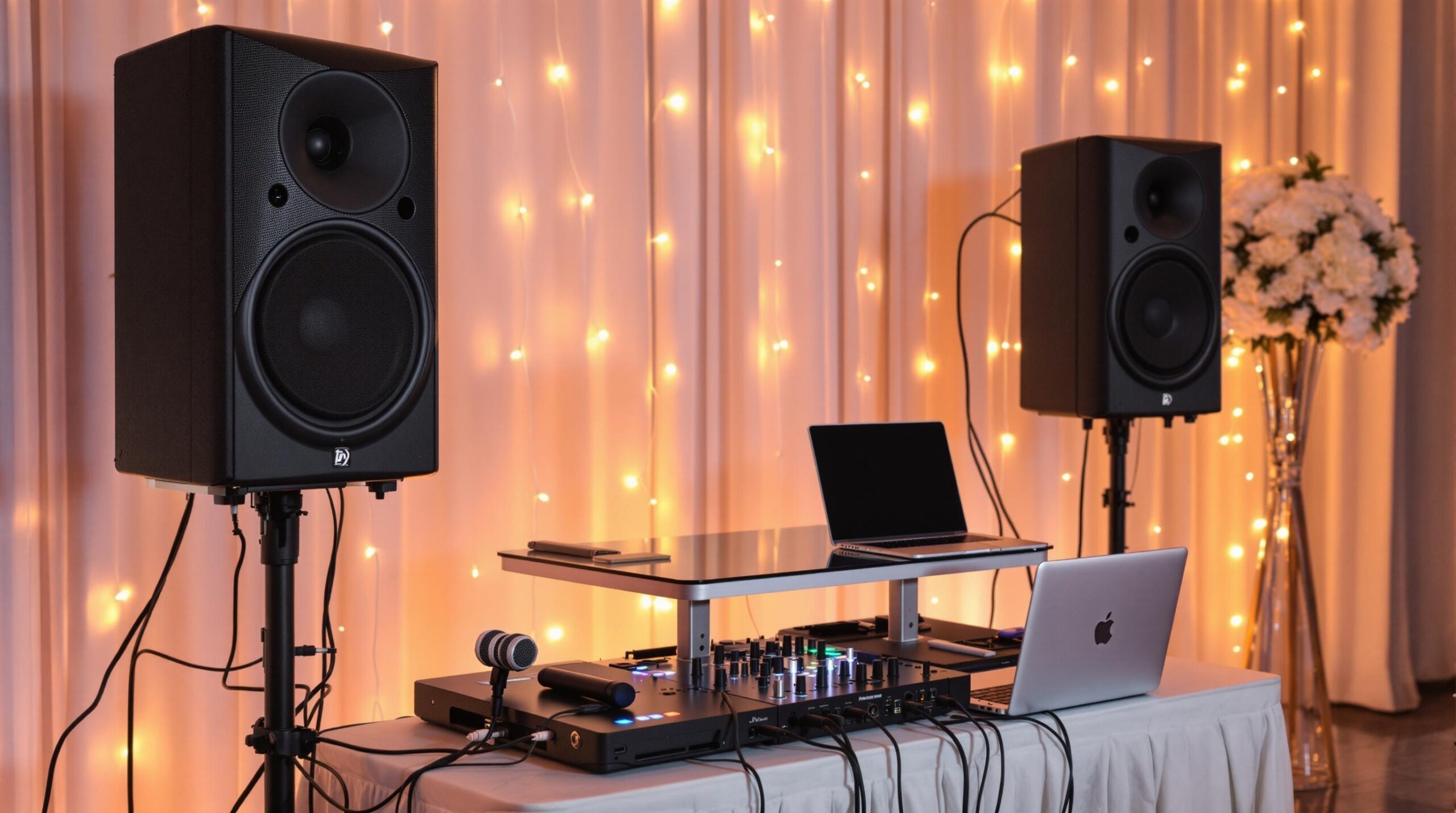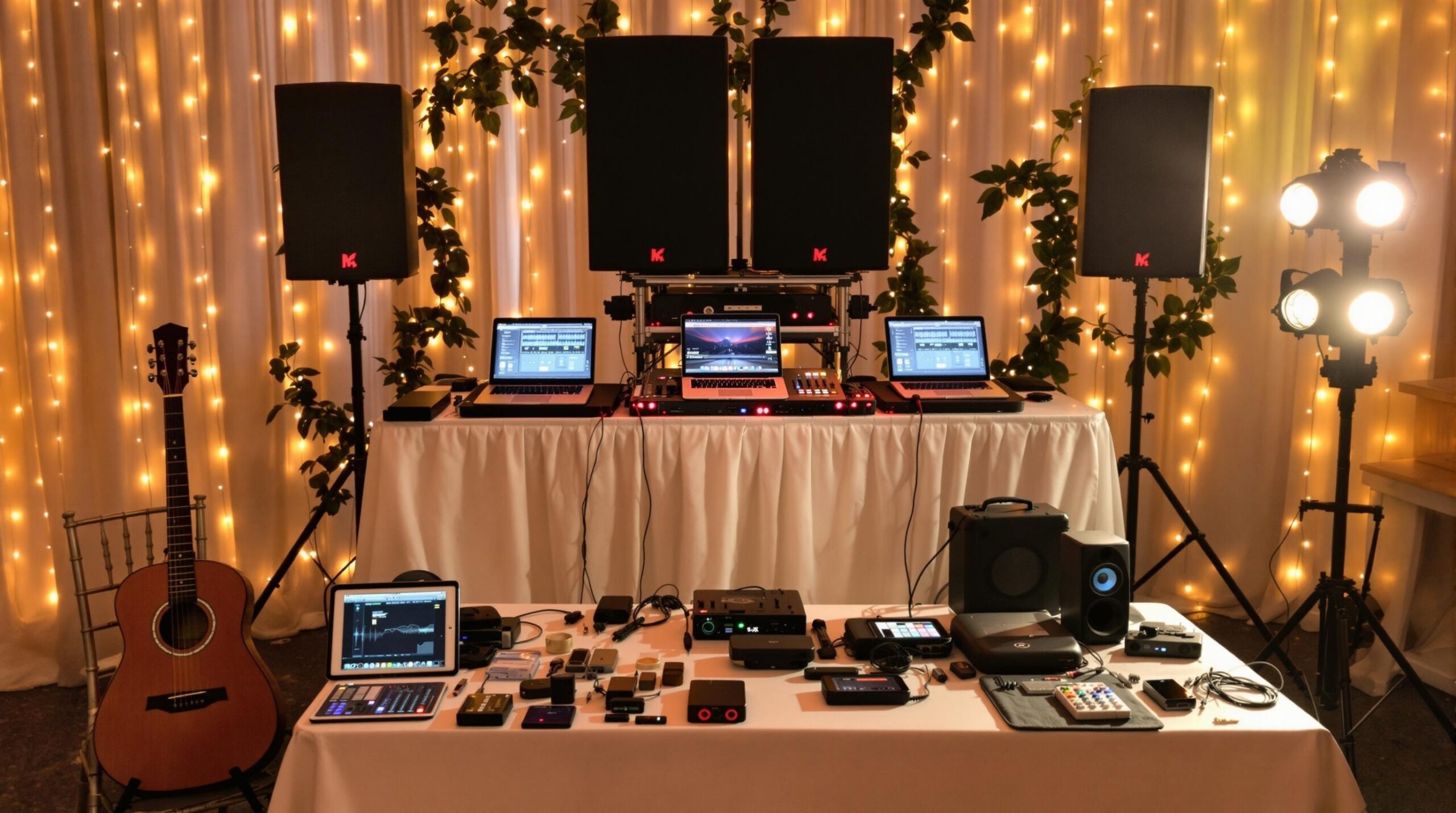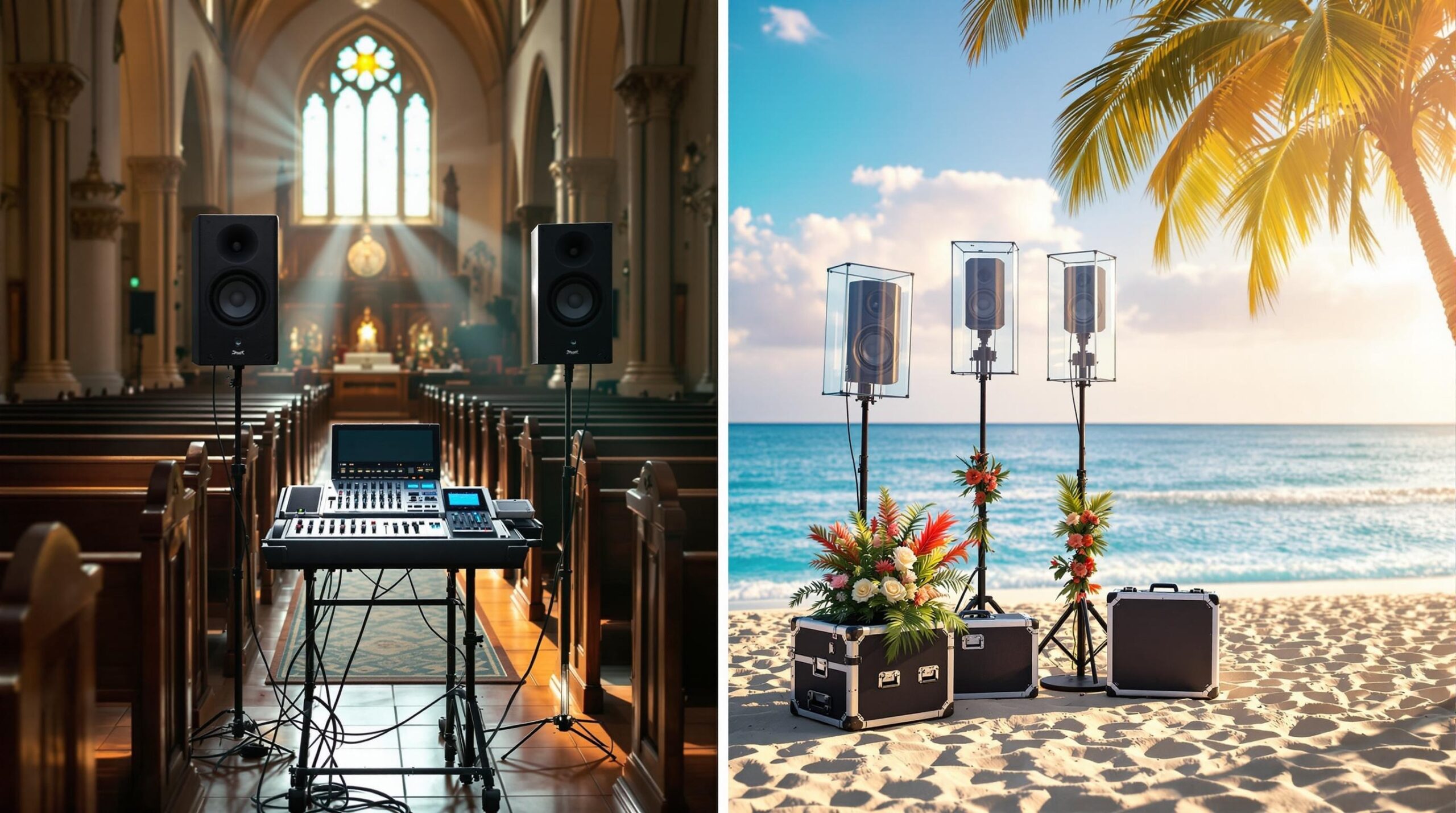Planning wedding music from another location adds an extra layer of complexity to destination wedding coordination. Remote planning requires strategic timing, clear communication, and tech-savvy solutions to create the perfect musical atmosphere.
Early Planning and Music Selection
Starting the music planning process at least 9-12 months before the wedding date gives you enough time to research local talent and handle international logistics. Create a shared playlist where both partners can add song ideas and preferences.
- Research local bands and DJs in your destination
- Consider cultural music elements of your chosen location
- Check venue sound restrictions and equipment requirements
- Review sample performances through video calls
Working with Remote Music Vendors
Communication tools like Zoom, WhatsApp, or FaceTime help bridge the distance gap with potential musicians. Schedule virtual meetings during their local business hours to respect time zone differences.
| Communication Method | Best Used For |
|---|---|
| Video Calls | Initial meetings, live demos |
| Contract details, song lists | |
| Quick updates, time-sensitive changes |
Technology and Backup Solutions
Digital preparation helps avoid common destination wedding music mishaps. Create backup plans for every musical element of your celebration.
- Download key songs offline to a dedicated device
- Bring portable speakers as backup equipment
- Test video call quality for virtual performances if needed
- Save all music-related documents in cloud storage
Remember to check voltage requirements and adapter needs for any electronic equipment you’ll bring to your destination. Work with your venue coordinator to understand local power systems and available audio equipment.
Managing Sound Requirements and Equipment
Every destination venue presents unique acoustic challenges and technical specifications that need careful consideration. Sound ordinances and equipment compatibility can impact your music choices significantly.
- Request venue floor plans with power outlet locations
- Confirm maximum decibel levels allowed
- Document equipment provided by the venue
- List additional rentals needed
Coordinating with Local Music Professionals
Building strong relationships with on-site music coordinators helps ensure seamless execution. Local expertise provides invaluable insights into regional preferences and technical requirements.
| Professional | Role in Planning |
|---|---|
| Venue Coordinator | Sound restrictions, setup logistics |
| Local Band Leader | Song selection, performance timing |
| Sound Engineer | Equipment setup, acoustic optimization |
Creating Contingency Plans
Weather considerations and technical difficulties require robust backup strategies. Develop alternative plans for both indoor and outdoor scenarios.
- Prepare indoor venue alternatives
- Have backup musicians or DJ on standby
- Create emergency contact list for vendors
- Test all equipment 24 hours before
Final Preparation Timeline
Schedule key music-related tasks in the weeks leading up to the wedding. Proper timing ensures all elements come together smoothly on the big day.
- 1 Month Before: Confirm all song selections
- 2 Weeks Before: Review setup logistics
- 1 Week Before: Test backup equipment
- Day Before: Complete sound check
Remember to keep copies of all music-related contracts, playlists, and contact information in both digital and printed formats. Share these documents with a trusted wedding party member for additional backup.




